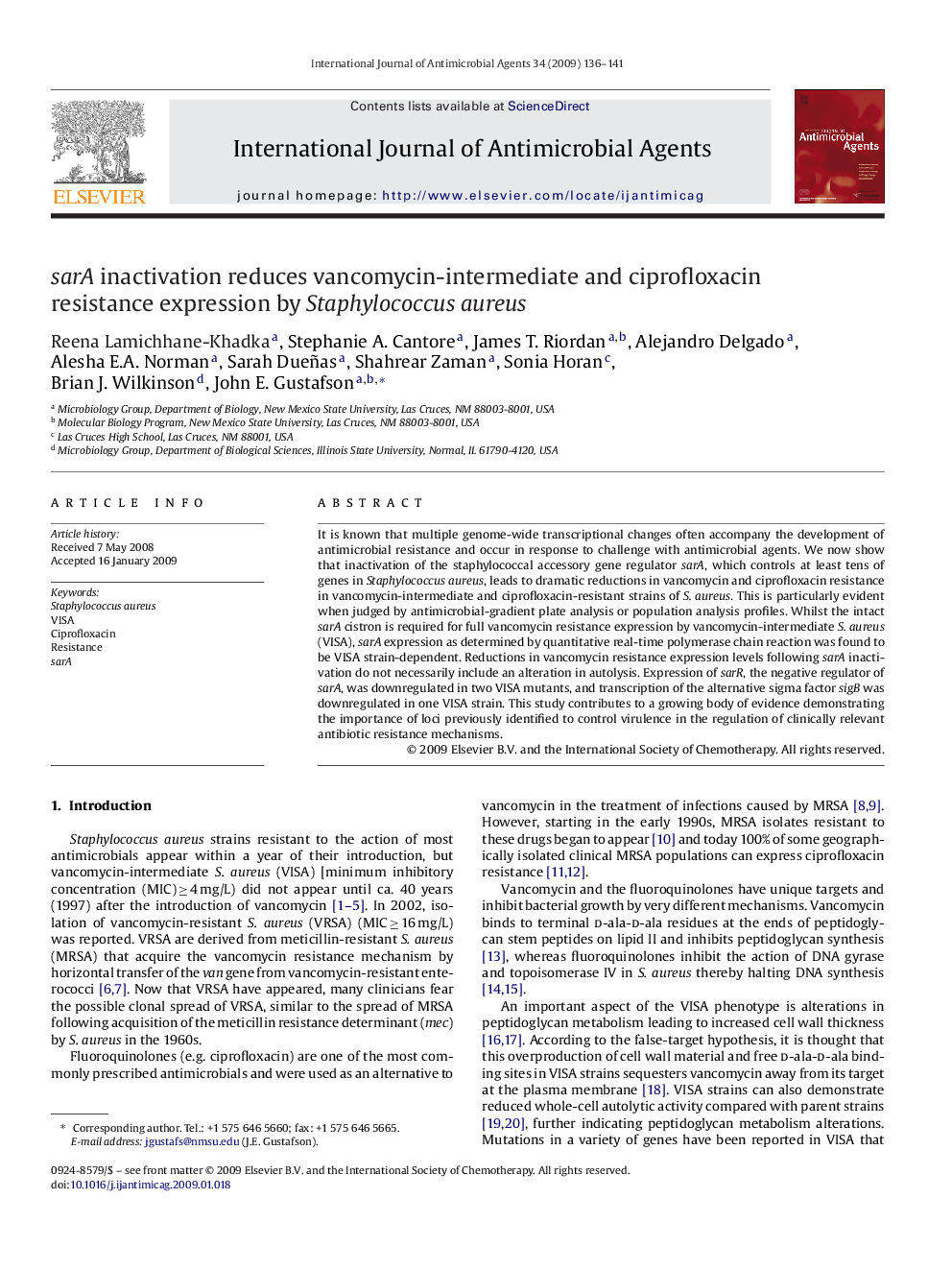| Article ID | Journal | Published Year | Pages | File Type |
|---|---|---|---|---|
| 3360463 | International Journal of Antimicrobial Agents | 2009 | 6 Pages |
It is known that multiple genome-wide transcriptional changes often accompany the development of antimicrobial resistance and occur in response to challenge with antimicrobial agents. We now show that inactivation of the staphylococcal accessory gene regulator sarA, which controls at least tens of genes in Staphylococcus aureus, leads to dramatic reductions in vancomycin and ciprofloxacin resistance in vancomycin-intermediate and ciprofloxacin-resistant strains of S. aureus. This is particularly evident when judged by antimicrobial-gradient plate analysis or population analysis profiles. Whilst the intact sarA cistron is required for full vancomycin resistance expression by vancomycin-intermediate S. aureus (VISA), sarA expression as determined by quantitative real-time polymerase chain reaction was found to be VISA strain-dependent. Reductions in vancomycin resistance expression levels following sarA inactivation do not necessarily include an alteration in autolysis. Expression of sarR, the negative regulator of sarA, was downregulated in two VISA mutants, and transcription of the alternative sigma factor sigB was downregulated in one VISA strain. This study contributes to a growing body of evidence demonstrating the importance of loci previously identified to control virulence in the regulation of clinically relevant antibiotic resistance mechanisms.
